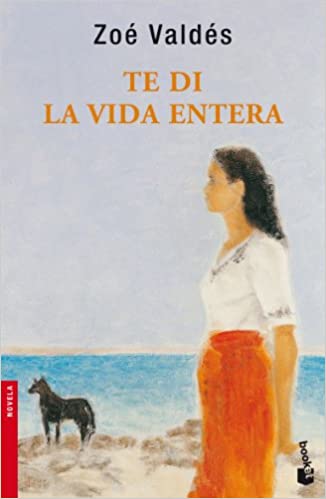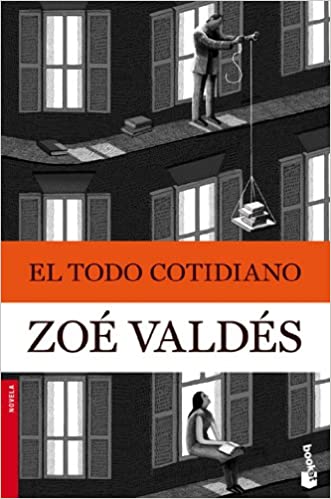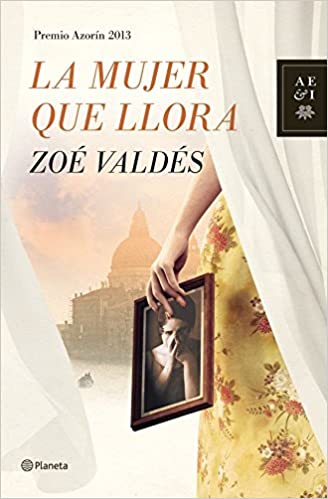The ability to move easily between narrative and poetry is always enviable, in this case I am referring to the Cuban author Zoé Valdes. If to this magical creative compatibility we add that prolific creativity spread among dozens of works, we have to surrender to the evidence of those who touch the virtue of genius.
Of course, where you don't know, you can't get into it. So I will ignore his facet as a poet and focus on his future in the fields of prose. Although, of course, the fondness for the lyrical serves in Valdés' plots to outline an aesthetic brilliance loaded with symbolism and sediment.
Zoe Valdés addresses from the historical genre to the most personal portraits of an existentialism always endowed with a rhythm, that something that has the interest of the good chronicler.
Characters always laden with deep wounds or transcendent vital longings in settings in Havana, Miami, Madrid or anywhere else in the world where to overflow with that humanism that permeates every novel that can aspire to become a classic of a time or of any place. A writer on whom to dive into a bibliography as extensive as it is widely recognized by great literary awards.
Top 3 recommended novels by Zoé Valdés
I gave you my whole life
It is curious how Cuba becomes the hands of many authors in that separate world that advances in parallel with its nature as a political stronghold of other times.
Writers of a dirty realism like Peter John Gutierrez, which fits with that Cuban spirit of survival, or others like Padura, in charge of taking advantage of the particular idiosyncrasy of the island to offer a black genre to the backwater of the Caribbean.
In the case of this novel by Valdés, with the starring role of Cuca, we advance through a story that generates a symphony between the city and the woman, between Havana and Cuca.
Both face changes, passions capable of transforming everything, disappointments and abandonments. Getting ahead in the midst of a revolution that would extend to the present day with that label that serves to perpetuate disaster is never easy.
That is why the light of Havana and the light of Cuca are discovered dim, waiting for the magic of the nights that follow one another under the frenzy of the boleros, until the despair internalized as a tragic humor, survival in the face of nothing, in front of the beaches to which lost lovers will never reach, only their shadows to cling to in stale-flavored honeymoons. Beaches to which the true prosperity of a revolution that has come to decline does not reach either.

The everyday everything
Exile can be a place where one ends up being more than ever one of those roots torn from their destiny. In this novel with a bohemian setting, a magical fusion takes place between the most outlandish characters of that Paris plagued by night birds with the pretense of artists with a community of Cuban exiles headed by a Yocandra who returns to the French capital in search of that second opportunity to be happy.
The naturalness with which the satellite characters that haunt the universe of Yocandra move favor that mimicry with the most well-used philosophies of survival, of searches for happiness in passions and underworlds.
And among the humor that can be distilled from sordidness, the hint of unhappiness, of Cuban homesickness, of dissatisfaction with a Cuban regime that seems to be going to last longer than their own lives, flashes. A strange and fascinating hodgepodge where we enjoy an existentialism on the street, between the routine, from that daily life that for those who feel out of place may seem the most unreal thing in the world.
The woman who cries
The most mythical characters always have that dark side that is nothing other than their essence as a person beyond the spotlight, the interviews and the work.
I know that I am a skeptic, but I certainly think that a biographer will always end up telling 5% of the truth of any narrated character. All this dissertation comes to collation of one of those works that undress from very different planes to the known ones.
Dora Maar was an artist whose relationship with Picasso, whether due to direct or indirect causes (I am not going to be the judge), ended up being lost in the surrealism that ended up being her relationship and her life.
In this book about Dora, Zoé Valdés takes us to what could have been that bright world at the beginning of Dora in Paris and gradually blinding around her relationship with Pablo Ruiz Picasso. In the tragedy that Dora's life pointed out, the author offers us a drama charged with that strange magic between bohemianism, passion and youth, the interim before everything darkens.



I'm interested in your new Astro and Batista book
Thank you Gonzalo